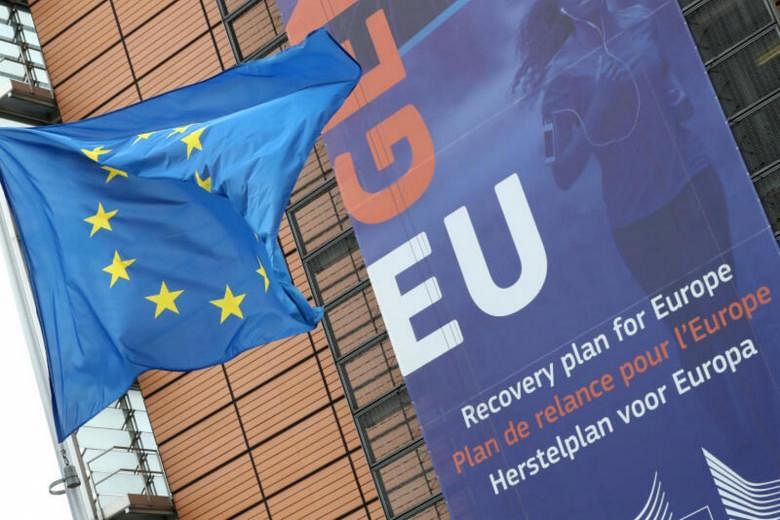WARSAW/BRUSSELS (REUTERS) - European Union leaders will seek to overcome their differences over a proposed stimulus to kick-start economic growth stifled by the coronavirus as they meet in Brussels on Friday (July 17) for their first face-to-face talks since the pandemic hit.
Dutch opposition and a threat of a Hungarian veto weigh on chances for a deal on the EU's 2021-27 budget envisaged at slightly above €1 trillion (S$1.58 trillion) and an attached new recovery fund worth €750 billion meant to help rebuild the southern economies affected the most by the crisis.
"For the markets, for the general image of the European Union, for the political message towards the member states and towards our citizens, it would be fantastic if we reached an agreement," Croatian Prime Minister Andrej Plenkovic said late on Thursday (July 16).
But with major differences persisting on the scale and scope of recovery funding, as well as on the budget, he added: "It's never certain whether an agreement will be finalised, or not."
The 27 EU heads will gather from 0800 GMT in a room equipped with hand sanitisers and disinfected headsets to provide translation in the Brussels EU headquarters, which will be unusually void of journalists as a health precaution.
The stakes are high with EU economies in free fall, immediate relief measures like short-time work schemes running out this summer and paving the way for what some fear would be an autumn of deep economic malaise and social discontent.
That would risk damaging the EU, already struggling with the protracted saga of Brexit and bruised by its past crises from the financial meltdown to migration feuds, exposing it to more eurosceptic, nationalist and protectionist forces and weakening its standing against China, Russia or the United States.
"Everybody knows that autumn will be difficult," said a senior government official in one EU state.
"It would be really good for Europe to send signal to all that we are united."
After months of feuds over medicines, medical gear, border closures and money to respond to the coronavirus, the EU has already agreed on a half-a-trillion-euro scheme to cushion the first hit of the crisis and narrowed some differences over how to finance kick-starting economic growth over the long term.
But major gaps must still be bridged if the 27 are to reach the necessary unanimous agreement in two days of planned talks.
Dutch Prime Minister Mark Rutte is the main holdout among the thrifty camp of northern, wealthy EU countries demanding a smaller overall package, economic reforms as a condition for getting funds, an inflated vetting process for granting aid and keeping rebates for net payers to the bloc's joint coffers.
The high-debt, ailing southern countries like Italy and Spain are calling for the recovery financing to come as free grants rather than repayable loans, while Hungary has threatened to veto the whole package over a proposed new mechanism to freeze payouts for countries undercutting democratic values.
Among the other sticking points are when to make the recovery money available and for how long; how to repay debt to be acquired by the bloc's executive European Commission to collect these extra funds; and how much should be channelled to green projects.











